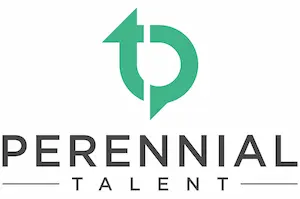How to use competencies for interviewing
The interview is the most common tool used for hiring. There are many types of interview questions. Some are very effective, and others are not effective at all. Let’s explore a few types of interviews and why competency-based interviews are so effective.
Types of interview questions
One of the most important decisions an organization can make is to who to hire. To help inform these decisions, a hiring manager will interview applicants to get a sense of whether that person’s skills, abilities, knowledge, and values fit the job and the organization. Hiring managers typically use a variety of types of questions, such as behavioral interview questions (those that measure a candidate’s approach based on past experience) and situational questions (those that show how a candidate would react to a specific scenario). However, the use of non-traditional interview questions to make hiring decisions has become much more common in recent years. For example, the candidate may be asked questions like, “How many marbles can you fit in a spaceship”? or “if you could be any kind of tree, what kind of tree would you be and why?” The idea behind these types of questions is that you can learn about how a candidate thinks, how creative they are, or how they handle on the spot challenges.
Should these non-traditional questions be used?
In short, no.
The reason is that you have no idea what they actually measure and you have no way to objectively rate them.
1. What do they measure?
Research has yet to demonstrate that these non-traditional interview questions accurately predict successful performance. Let’s look at the interview question, “if you could be any kind of tree, what kind of tree would you be and why?”; if someone answered that they wanted to be an oak tree because they can then build roots. Does this answer mean that they would be a good leader or that they want to stay long term with the organization? It is very hard to interpret a candidate’s response and link it to the skills they would need to be successful on the job.
2. How do you rate them?
The answers to these questions would vary a great deal from candidate to candidate. This would make coming up with a rating scale very challenging and it would also make it next to impossible to compare candidates’ responses. Is an oak tree better than a birch tree? If you cannot compare candidates’ responses, how would you know who is better suited for the job?
How to structure your competency interview questions
There are several things you can do to ensure that your interview process is legally defensible and that it will help you to make the best hiring decisions possible.
1. Link the questions back to the requirements of the job
When developing your questions, it is important to ensure that the questions are directly linked to the requirements of the job. If it is determined that a critical skill for the job is customer focus, then you can ask the candidates behavioral questions such as, “describe a situation where you needed to deal with a difficult customer?” This way you can see how the candidate has acted in the past because one of the best predictors of future performance is past performance.
2. Ask the same questions of each candidate
By asking each candidate the same questions, it allows you to more objectively compare candidates in terms of their skills.
3. Use a standard rating scale
To ensure fairness and an objective process, it is important to develop a standard rating scale that defines what a good answer and a poor answer looks like.
4. Train your interviewers
To ensure a fair, defensible, and effective process, it is important to ensure that hiring managers or whoever is conducting the interview are trained on how to open the interview, how to ask the questions, use the provided probes, take notes, and evaluate each answer.
References:
Campion MA, Palmer DK, Campion JE. (1997). A review of structure in the selection interview. Personnel Psychology, 50, 655–702.


